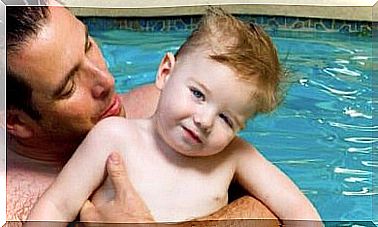6 Phrases That Promote Emotional Intelligence

Teaching children about emotional intelligence is about much more than reasoning and academic knowledge. It is about learning to control one’s own emotions and living in harmony with other people through the various stages of development.
When we talk about intelligence, we usually allude to the ability to learn. Intelligence is based on acquiring knowledge, as well as the ability to use it. The whole academic system is based on that concept.
There has been talk of teaching emotional intelligence in schools since the 90s. By investing in this one can strengthen other forms of intelligence.
In this article, we provide you with a list of helpful phrases that promote emotional intelligence in children. In these sentences , we try to make emotions implicit, as they are fundamental in every human being’s life.
Emotional intelligence is understood as knowing how to control and use one’s emotions so that one can live a more effective life.
Therefore, emotional intelligence is becoming more and more important in the education system and children are being taught about it early in their development.
Phrases that promote emotional intelligence
1. Understand how you feel.
Teaching children to acknowledge their feelings at an early age will enable them to cope better. Reactions to emotions such as anger or frustration may be out of control if the child has not developed the ability to recognize or deal with them.
Your child will improve his ability to relate to others by learning to control his own emotions. At the same time, the child will feel better about himself.
2. Stay in the now.
Being present in the now may seem banal, but it is a very useful habit. Being in the now is the best way to self-awareness.
Thereby, your child can understand what it is that triggers a particular response, and then he can be aware of the relationship between his reactions and emotions. This gives the child more control over himself.

Your child can also avoid harmful emotions such as anxiety, worry and guilt, by focusing on the present. A child who does not develop self-awareness is not aware of his own weaknesses, nor does he want the self-confidence that comes from knowing his own strengths.
3. Silence is good.
Many say that silence from a child is a cause for concern. But in terms of emotional intelligence, silence is an important ability to develop.
It gives your child benefits in life if you teach him or her to enjoy outside and inside silence. He will be able to reflect, and most of all he will be able to listen to his intuition. This is something we often overlook in today’s busy society.
4. Listen carefully.
With this sentence we can teach children to listen actively. Active listeners are the key to effective communication.
This involves teaching your child three basic things: that he must be aware of what he is saying, how he handles his body language to show the speaker that he is listening, and that he must be able to summarize the general idea of what has been said.
What do we achieve with this? Improvements in school performance and relationships with others, as effective communication implies respect for others.
5. May your heart and mind always follow you.
Adults sometimes go to extremes. We are either overly rational, or we go crazy and act impulsively. This phrase to promote emotional intelligence tells us that we need to look inward for balance.

Teach your child that it is important to act in balance between rational thinking and impulses. It will not always be easy, but it is important to practice this so that you can achieve it.
6. Put yourself in someone else’s shoes
Empathy is one of the fundamental pillars of emotional intelligence. Getting a child to understand the feelings of others is a very important step.
We become more involved in our own emotions when we can assume the emotions of others. It is a two-way process in which both individuals have something to achieve.
You learn to perceive what the other person wants or needs. A child who develops empathy will be a trustworthy adult. It is a special ability in professions that involves constant contact with other people.
These sentences, which promote emotional intelligence, can be hung up in the classroom, in the child’s bedroom, and it can even be printed on a t-shirt.
Emotional and cognitive development are essential to achieve more balanced and integrated adults.









